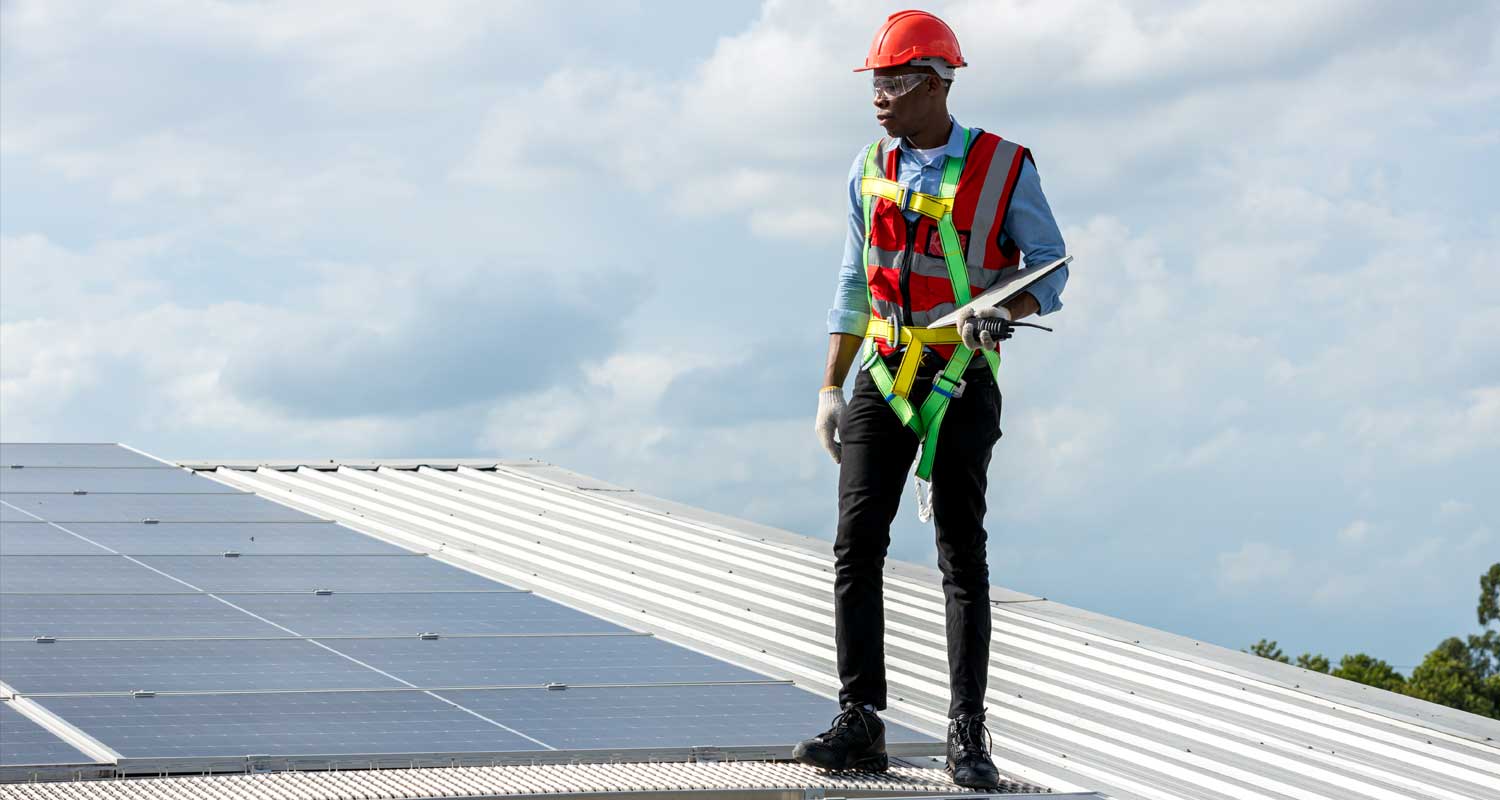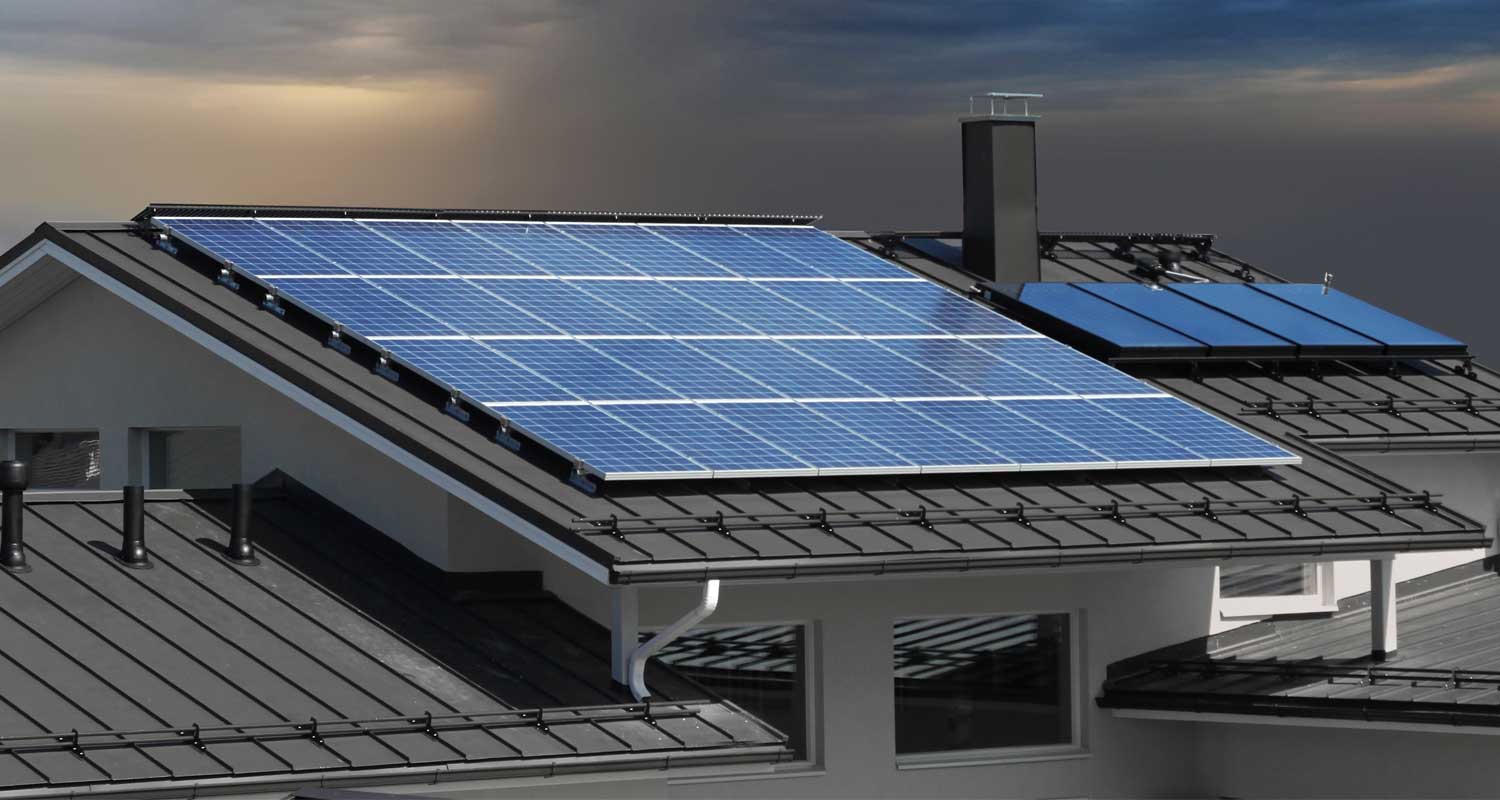 National treasury has outlined the basic requirements for the solar panel tax incentive.
National treasury has outlined the basic requirements for the solar panel tax incentive.
This follows an announcement by finance minister Enoch Godongwana at the tabling of the national budget earlier this year that tax incentives would be provided to households installing rooftop solar photovoltaic (PV) systems. The incentive will be available for one year only to encourage investment as soon as possible, national treasury said.
Individuals who pay personal income tax can claim the rebate against their tax liability. Individuals will be able to claim a rebate to the value of 25% of the cost of new and unused solar PV panels, up to a maximum of R15 000 per individual.
Pay-as-you-earn taxpayers will be able to claim the rebate on assessment during the 2023/2024 filing season while provisional taxpayers will be able to claim the rebate against provisional and final payments.
Individuals will be able to claim the rebate if they have a VAT invoice that indicates the cost of the solar PV panels separately from other items, along with proof of payment.
They will also be able to claim the rebate if they provide a certificate of compliance proving that the solar PV panels were brought into use for the first time in the period from 1 March 2023 to 29 February 2024.
The requirements for solar panel tax incentives are as follows:
- Only new and unused solar PV panels qualify to ensure that the capacity is in addition to what the country already has in place. The panels can be installed as part of a new system, or as an extension of an existing system.
- Only solar PV panels with a minimum capacity of 275W/panel (design output) qualify for the rebate. Other components of a system – batteries, inverters, fittings or diesel generators – and installation costs do not qualify. Portable panels will also not qualify.
- Solar PV panels must be installed at a residence that is mainly used by an individual for domestic purposes. The installation will have to be proved with a certificate of compliance in terms of the Electrical Installation Regulations, 2009 to ensure safety of the installation and compliance to electric regulations.
- The solar PV panels must form part of a system that is connected to the mains distribution of the private residence.
- The rebate applies to qualifying solar PV panels that are brought into use for the first time in the period from 1 March 2023 to 29 February 2024.
National Treasury explained that installation costs for diesel generators, inverters and batteries are not included in the incentive.
“Diesel generators are often used as emergency backup but are not a sustainable solution to generate additional power. They increase demand for fuel and have negative environmental impacts. Generators would detract from the climate objectives government is committed to, where fiscal instruments like the carbon tax play an important role.
Read: New funding option for firms looking to go solar
“While an inverter and batteries are required to use solar panels, inverters and batteries can be operated without solar panels – in which case, they offer no additional capacity to the system. The focus on solar PV panels is to maximise the use of limited government funds to get as much additional generation capacity as possible – and recognises that government will have to focus on a partial rebate of the components that are most directly linked to generation. This is why installation costs are not included either,” national treasury said.
 There is no ownership limitation for the incentive, so installations by landlords or renters would be eligible, but only the party that pays for the solar panels can claim the rebate.
There is no ownership limitation for the incentive, so installations by landlords or renters would be eligible, but only the party that pays for the solar panels can claim the rebate.
If occupants of a sectional title are permitted to install their own panels, then the tax incentive applies as for all other individuals. However, a body corporate will not be able to claim this incentive.
“It is not clear whether many body corporates will be purchasing solar installations instead of using leasing or other options to avoid upfront costs for members. Government will be consulting on this aspect.
“If there is widespread interest in bodies corporate purchasing and installing solar panels, then payment (for example, special levies) for solar installations levied from the occupants would have to indicate the cost of the solar panels separately – as would be the case for any other claimant.
“The applicable certificate of compliance data would also have to be shared with the South African Revenue Service. Because there would be some adjustments to ensure that the right people could claim the right amounts, there will be consultation to determine the required approach and documentation,” national treasury said.
Clawback
There will be no recoupment if an individual sells their house after having benefitted from this incentive, as the solar panels will likely remain fixed to the house and used by the following owner, still allowing for an expansion in generation.
There will, however, be a clawback of the rebate if one sells the panels within one year after they were first brought into use. This is to counter potential abuse.
This incentive will be included in the annual tax amendments.
Read: No, minister, solar won’t collapse the national grid
A draft version of the legislation will be published for public comment no later than the publication date of the 2023 Draft Taxation Laws Amendment Bill.
The minister of finance tables tax bills during the medium-term budget policy statement in October each year.

“Parliament considers the amendments, after which the president can assent to the amendments, usually by January of the year after the announcement.
“The aim of this note and the draft legislation to follow is to provide as much upfront clarity as possible, so that individuals do not feel they need to wait for the tax bills later in the year before making a decision to invest and benefit from the incentive.
“The guidance provided is, nevertheless, subject to the outcome of the consultative process on the proposal and parliament’s ultimate decisions on the legislation giving effect to the proposal,” national treasury said.

